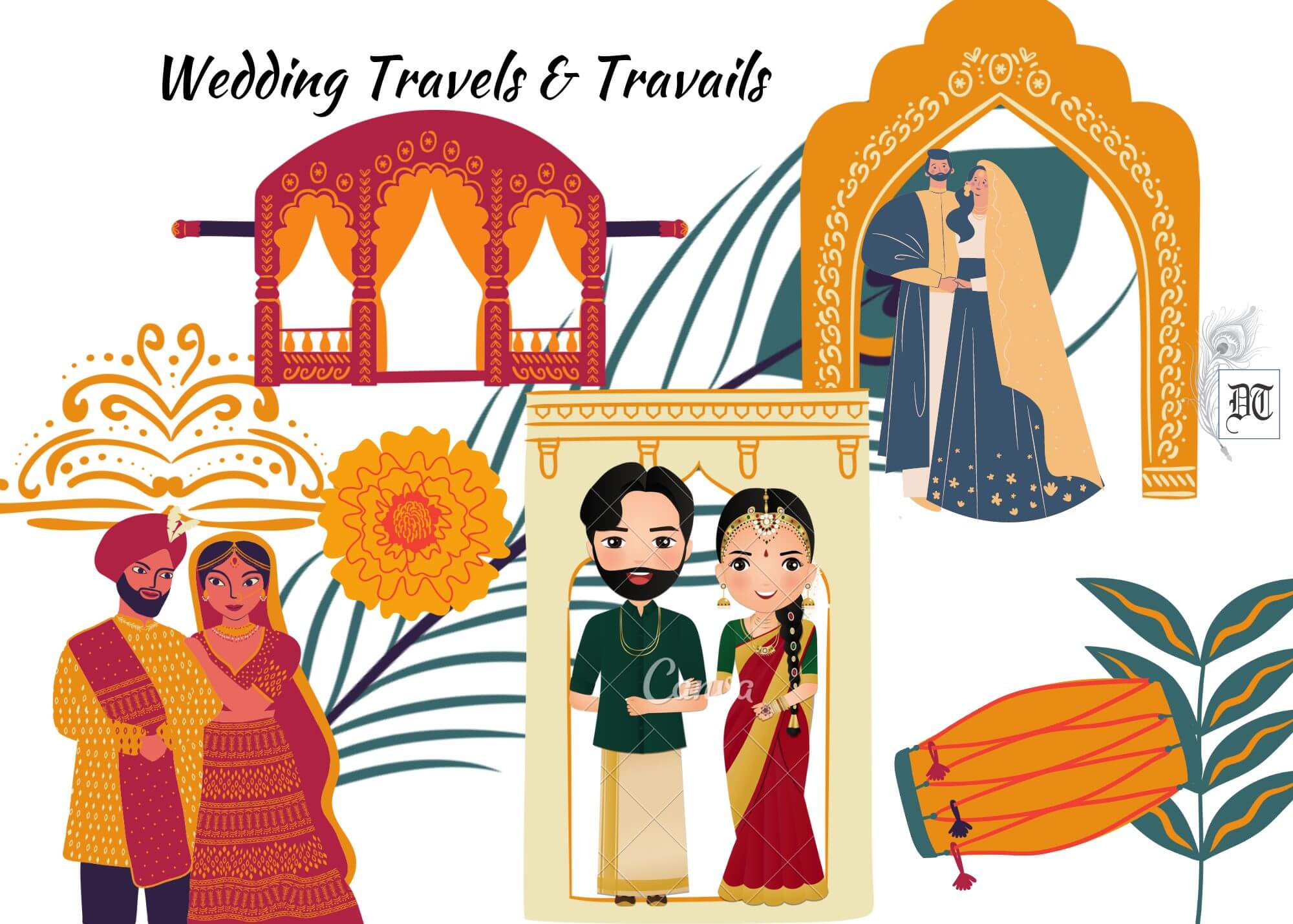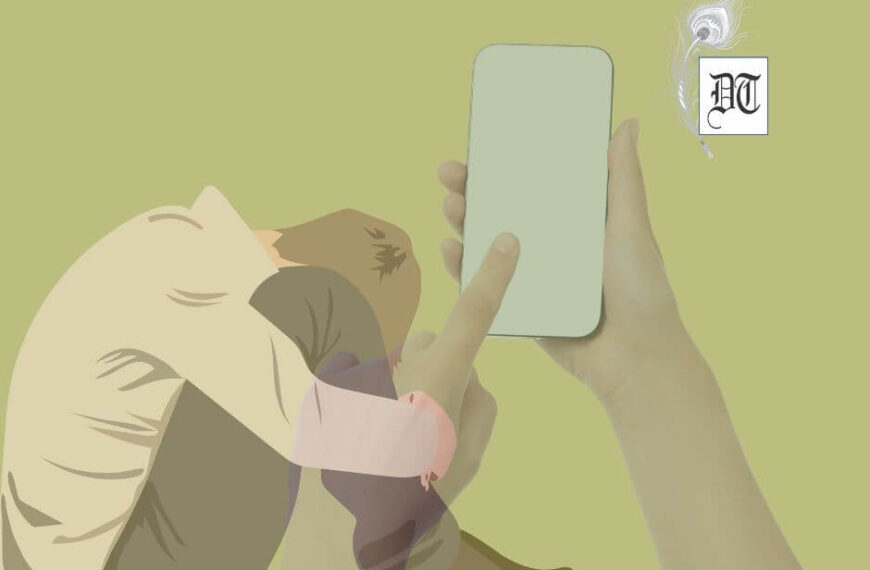In the second part, Dr Roopali tells us how a marital venue turned martial; also how girls gatecrashed in another wedding. What happened at these places? Find out – exclusively in Different Truths.

From Jammu, I memory-travelled to Ambala, south of Jammu but still in Northern India. Jocularly called Crumbala by the Air Force officers stationed there. They proudly flew fighter aircraft called Jaguars.
The Dhobi (washerman) behind our house was marrying off his youngest daughter. I was now attending a wedding as a prominent guest. Tagging along with me was my three-year-old thumb-sucking daughter. The spouse was away on military night training.
The baraat (wedding) procession, I was told, was coming from Kurukshetra. That is where according to the legend, the Mahabharata, the Pandavas and Kauravas had battled.
The groom Arjun Singh, or Bunty, could easily be a not-so-direct descendent of the hundred Kauravas. The boy was a Matriculate fail, which meant he had reached a high level of education. However, he hadn’t passed his final exams.
Dhobiji was feeling proud. His daughter Krishna Kumari had passed all her exams.
Dhobiji was feeling proud. His daughter Krishna Kumari had passed all her exams. She also knew typing and shorthand. Years of washing other people’s dirty linen on the rocks down at the local stream, she had helped him save some money.
A modest canvas wedding platform with sufficient chairs and a marigold floral decoration welcomed us. We could hear the dholak drum and the loud ghori gas band music playing a popular tune Come September! The gas band dudes across north India had appropriated it as wedding music.
An hour passed, and the baraat, which had travelled from the battlefield of Kurukshetra, kept up their frenzied dancing. Reeking of alcohol, they held up the auspicious time to perform the wedding ceremony. “The auspicious muhurta (auspicious hour) is passing,” grumbled the priest. I decided to take my kid home and feed her a quick dinner.
The wedding was taking place right behind our house, and I could be home, feed the kid, and be back in 20 minutes at the latest. I didn’t want to miss the garlanding ritual. This was the first time I was a guest at a wedding!
When I returned a half hour later, the wedding venue was empty.
When I returned a half hour later, the wedding venue was empty. An eerie silence hung from everything. The chairs and tables lay upside down. Everything was helter-skelter: broken sandals, shoes, and torn pieces of clothing were scattered all around. An upturned wok and some burning coal lay abandoned. A post-battle scene unfolded itself. Unbelievably marital had turned martial.
I peeped into the half-open door of the single room where the bride Munni’s family lived. She was sitting on the floor sobbing her heart out.
A mumbling angry older woman informed me that there were some dowry demands. The groom had refused to enter the venue. He was asking for a motor scooter – a Vespa. “We should throttle all newborn girls. They bring dishonour to the family.” The older woman spat and cursed the bride and began to wail.
A few neighbours had gathered upon seeing me. Eager to narrate the events. The two families had clashed over the payment of dowry. Somebody had called the police. As usual, they were in no hurry. Thus, the battle raged unabated.
When the cops arrived, they arrested the unruly inebriated crowd and took them away in a van. They didn’t spare the girl’s father and uncles either. There was some talk of lockups and phoning the local Vidhayak guy.
“The cops will now demand a hefty bribe.” One of them spoke with confidence. “Better to pay dowry than bribe cops and land up in sasural” (jail), another counselled. “The girl’s father should have fulfilled promises he made.” “Truly, girls are a burden”, another piped up. “Who will marry her now.”
“She will remain a lifelong spinster.”
My little girl began to howl with disappointment and fear.
My little girl began to howl with disappointment and fear. No music. No horse. No wedding.
The Dowry Prohibition Act of India had been introduced years before, but brides were still being burned alive or were committing suicide. That wedding scene has remained etched in my mind: those broken sandals and shoes, those upturned chairs. We have travelled a long way but regressed in our habitual behaviour as a nation.
In Bangalore, we scaled our college wall on Palace Road and gatecrashed a wedding. It was a solemn Tamil Iyengar affair. A lone shehnai man played a snaky tune on his instrument. Sometimes the notes were high, sometimes low. A mridangam drum tried drowning the mournful meaningless sounds.
The bride was dressed in cream and gold. She didn’t wear a veil either.
Nobody noticed us. We settled down on the carpet in front of the religious rituals. The bride was dressed in cream and gold. She didn’t wear a veil either. Flowers of orange and white adorned her head.
“He is an engineer”, some arrogant uncle whispered into our ears. He didn’t mean the bride.
The groom looked like a priest, dressed in a white mundu dhoti (unstitched garment). A fellow gate crasher whispered, “He looks like a dosa vendor!” We fell on each other, giggling.
Midway through the rituals, the bride went away, returning in a new sari. In the meantime, the groom held an umbrella and threatened to leave for Kashi – Varanasi – to become an ascetic. The bride’s dad stood, hands folded, begging him not to go. Earlier, he had even washed the fellow’s feet. Our budding feminist feelings began to rise.
This was unbearable. We shouted, “Let him go, let him go.”
That’s when somebody noticed us, frowned angrily, and scolded us in Tamil. It was part of the ritual. We tiptoed out, this time through the gate without the scrumptious vegetarian feast.
Better not to get married. It was a collective decision.
Another time, at a wedding in Hyderabad, men and women were strictly segregated.
Another time, at a wedding in Hyderabad, men and women were strictly segregated. We, girls, were only allowed to meet the groom after the Nikah (wedding) ceremony. This was after she had said qubool hai and he had uttered qubool hai (I accept!)
We weren’t interested. The groom was now a married fellow. So, we turned our loss into gain by having fun being ourselves. Women and girls joked and laughed without care. No burkas or hijabs to be worn. No judgement by disapproving men.
Low square tables covered with white tablecloths greeted us. These were the dastarkhwān – sacred spaces where food is meant to be eaten. We sat on floor cushions and enjoyed a gourmet treat. It was the freedom we had not tasted before.
A continuous replenishment of the saffron-soaked aromatic chicken biryani, the mirchi ka salan, bagara baingan, haleem and double ka meetha delicacies. We took many helpings. We greedily tore into the Boti kebabs and Raan-e-musallam lamb shank. Every woman would be hungry for her spouse or in-laws. Kids ran amok.
I still crave the elegance of that gourmet wedding dinner.
We rushed and pushed for the sumptuous buffet tables at the Meerut wedding.
We rushed and pushed for the sumptuous buffet tables at the Meerut wedding. Every counter was loaded with food whose exotic cuisine roots lay elsewhere. Indian, Mughlai, Chinese, Italian, Mongolian, continental, Peruvian and street food.
It is a traveller’s delight. You fill your plate with tandoori naan with a dollop of creamy pasta, followed by a fiery helping of Hakka chow mien submerged in daal makhani. The famous Russian salad made us forget Ukraine. Everything looked and tasted the same. Gooey, creamy. It was garnished with cashew nuts.
We didn’t get to see any festivity at the palatial banquet hall. We didn’t get a glimpse of the bride either. She was delayed at the beauty parlour. A forlorn groom sat on a flower-decorated dais. Photographers were searching for the subject matter.
We got busy. Like tea tasters, we ran from one buffet table to another. Mongolian and Peruvian are new additions to wedding menus. Meerut, once a non-descriptive town, is a much-desired destination wedding venue today.
But I must also tell you how technology brought a wedding ceremony into my hands.
But I must also tell you how technology brought a wedding ceremony into my hands. In a faraway village in Bihar’s Darbhanga district, wedding celebrations were on. High on rituals, the wedding guests were seen chomping on tandoori chicken and roomali roti, rasmalai and other delicacies.
Halwai chefs stood beside giant woks, preparing all the goodies in real-time. All live streamed.
A DJ belted out feet-stomping Bollywood music.
The groom’s brother, a veteran soldier, wandered the venue with his mobile phone, giving us a ringside view of the goings on. Dowry items were on display. A refrigerator, washing machine, flat screen TV, crockery, furniture, bedding, and clothing. The precious dowry gift to the groom – a swank shining motorbike stood showroom style!
Gold hung from every female nose, neck and earlobe. The old and the new seemed to blend seamlessly. Women and men moved about freely. There were joyous sounds of laughter.
Young volunteers were serving food. Some of them were only allowed to clear the tables. They were not permitted to accompany the wedding procession. In our profoundly caste-ridden village society, some people are still more equal than others.
Picture design by Anumita Roy






 By
By
 By
By
 By
By
Mistress of the mock heroic to mix tears of laughter with those of pain.